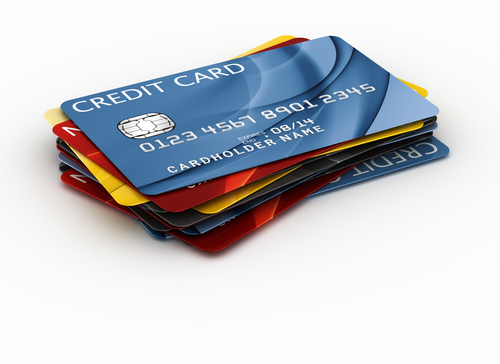Practically every bank issues at least one type of credit card, and as an act of loyalty, you might apply for a credit card with your personal bank. However, there is a price to dealing with your bank, and this is usually in the form of higher interest rates on credit cards, mortgages and auto loans. A credit union credit card is a great alternative to a bank credit card. But unfortunately, these types of credit card aren’t as readily available. Here are a few tips to help you find a credit union credit card.
Find a Credit Union That You’re Eligible to Join
Credit unions are very different from banks. You can drive to any bank in your local area and open a checking or savings account on-the-spot. Banks are not picky and they’ll accept just about anyone as a customer. Credit unions aren’t as accepting and you must meet a certain criteria to join these financial institutions.
Credit unions provide services to specific groups or organizations. To join a credit union, and apply for a credit card through the union, you must belong to organizations that the union accepts. Organizations can include certain clubs, schools and occupations. For example, some credit unions cater to the military and their families, whereas other credit unions might cater to teachers or people who attended a particular school. Contact several credit unions and inquire about the requirements to join. In all likelihood, you will be eligible to join at least one credit union in your local area.
Ask About Credit Cards
Finding a credit union to join doesn’t guarantee finding a credit card. Credit unions are often locally-based and smaller than banks. For this reason, a large percentage of credit unions do not offer credit cards or only offer one or two types of credit cards. Before opening a checking or savings account with a particular credit union, talk with customer service and ask about their types of credit cards. Does the credit union offer credit cards? If so, how many different types of credit cards? What is the median interest rate for their credit cards? What is the interest rate cap? What are other fees associated with their credit cards? Does the credit union offer balance transfer credit cards? Obtain information from several credit unions to ensure that you receive the lowest rate and the best deal on your credit card.
Qualifying for Credit
Being eligible to join a credit union doesn’t mean that you’re automatically eligible for one of their credit cards. Like banks, you have to submit a credit card application, and if the credit unions considers your credit history acceptable, the company may issue a credit card. A low credit score and frequent late payments can stop an approval. Clean up your credit history first, and then apply for a new credit card.
Practically every bank issues at least one type of credit card, and as an act of loyalty, you might apply for a credit card with your personal bank. However, there is a price to dealing with your bank, and this is usually in the form of higher interest rates on credit cards, mortgages and auto loans. A credit union credit card is a great alternative to a bank credit card. But unfortunately, these types of credit card aren’t as readily available. Here are a few tips to help you find a credit union credit card.
Find a Credit Union That You’re Eligible to Join
Credit unions are very different from banks. You can drive to any bank in your local area and open a checking or savings account on-the-spot. Banks are not picky and they’ll accept just about anyone as a customer. Credit unions aren’t as accepting and you must meet a certain criteria to join these financial institutions.
Credit unions provide services to specific groups or organizations. To join a credit union, and apply for a credit card through the union, you must belong to organizations that the union accepts. Organizations can include certain clubs, schools and occupations. For example, some credit unions cater to the military and their families, whereas other credit unions might cater to teachers or people who attended a particular school. Contact several credit unions and inquire about the requirements to join. In all likelihood, you will be eligible to join at least one credit union in your local area.
Ask About Credit Cards
Finding a credit union to join doesn’t guarantee finding a credit card. Credit unions are often locally-based and smaller than banks. For this reason, a large percentage of credit unions do not offer credit cards or only offer one or two types of credit cards. Before opening a checking or savings account with a particular credit union, talk with customer service and ask about their types of credit cards. Does the credit union offer credit cards? If so, how many different types of credit cards? What is the median interest rate for their credit cards? What is the interest rate cap? What are other fees associated with their credit cards? Does the credit union offer balance transfer credit cards? Obtain information from several credit unions to ensure that you receive the lowest rate and the best deal on your credit card.
Qualifying for Credit
Being eligible to join a credit union doesn’t mean that you’re automatically eligible for one of their credit cards. Like banks, you have to submit a credit card application, and if the credit unions considers your credit history acceptable, the company may issue a credit card. A low credit score and frequent late payments can stop an approval. Clean up your credit history first, and then apply for a new credit card.







